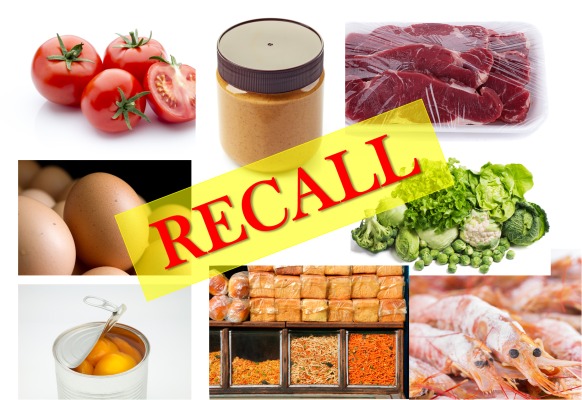If you’ve gained your food manager certification, you know that there are many ways that food-borne illness can spread. Even if you’re diligent with your safety procedures, there may be times when tainted product is delivered to your establishment and can cause a safety issue that you are unaware of. This week, we’ll discuss how a certified food manager can keep up to date on product recalls. Equally important, we will advise on handling potentially compromised product.

How Certified Food Managers Keep Informed About Recalled Food Products
One of the easiest ways to stay informed is to talk with your suppliers. Nowadays, most managers order their supplies online and may only see your supplier’s representatives on rare occasions. Taking the time to have to a regular conversation with your supplier is important for several reasons. And it’s especially helpful to keep you updated on recalls and safety issues with product that you regularly use.
With information readily available on the internet, online sources can be a great resource when researching product recalls. There are, however, numerous sources that may be unreliable. So we’d like to share a few on-line sites that can help keep you up to date:
First, the Minnesota Department of Health is a great resource a certified food manager can use for local product recalls and food safety alerts. This page offers links to local information and external sources for recall alerts. Second, the FDA’s recall site provides an easy to use chart. It defines:
- The company involved with the recall
- The recall reason
- Detailed information concerning the FDA’s action concerning the issue
Finally, Food Safety News is not a government or officially moderated site. But they provide a wealth of information concerning food safety hazards and recalls. Consequently, they cover news that may not be reported by mainstream news outlets.
Handling Potentially Compromised Product
When a certified food manager suspects they have received tainted or recalled product, the first they should notify your supplier. If you received it from a food service supplier, then their representatives will be able to retrieve the product and make sure that you’re reimbursed or a safe product is substituted. If you picked up your potentially contaminated food product directly from the source, it’s generally a good idea to return it to the outlet where you purchased it. In either case, if there are any complications or you’re concerned that this may be a serious issue, you may wish to contact your local health department.
We’d like to know how you keep up to date on food safety issues. Is there a resource or web-site that we may have missed?


